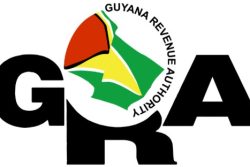Dear Editor,
I find it amazing how the European Union (EU) is being portrayed as the nemesis in the present debate about the EPA and the doing away of the Sugar Protocol. We seem to forget that we in the Caribbean sealed our fate when we signed on to the World Trade Organization (WTO) and embraced the ideological concept of global market liberalization (or so-called free markets). Signing on to the WTO implied that we were ready to remove all administrative and regulatory encumbrances to global trade and “ensure that trade flows as smoothly, predictably and freely as possible” (WTO mission statement). It should not be surprising then that in 2003, Brazil, Australia and Thailand announced their intent to challenge EU sugar subsidies at the WTO. These three nations attacked the EU sugar policy claiming that it unfairly favoured raw sugar imports from the African, Caribbean and Pacific (ACP) nations and that the EU sugar export quota and subsidy system violated WTO rules and unfairly supported European sugar exports.
When this challenge was issued the EU trade representatives at the time responded critically and warned that such a challenge would hurt developing countries. In fact, then EU Agriculture Commissioner, Mr Franz Fischler was quoted as saying that, “this challenge is hard to understand. It is nothing less than an attack on the EU’s trade preferences for developing countries. Let us be clear. The claims made by Brazil, Australia and Thailand risk undermining the benefits of the EU regime for many sugar-dependant developing countries, especially ACP countries. And to add insult to injury, they are challenging the commitments which were agreed upon by all WTO members during the Uruguay Round and which are fully respected by the EU.”
The EU wasn’t alone in voicing its concerns; the ACP countries, recognizing that an unfavourable ruling against the EU would have repercussions to the existing sugar protocol, came forward and also expressed their strong opposition to the Brazilian, Australian and Thai action. In the end, those protests didn’t matter at all in the grand scheme of things. No one could have realistically expected the chief free-trade establishment (the WTO) to side with the Europeans and on April 28, 2005, the World Trade Organization’s Appellate Body upheld its judgment that EU sugar policies were illegal and should be dismantled by 2006. One surprising aspect of the Appellate Body’s ruling was their opinion that there were no linkages between EU export subsidies and the access afforded to ACP sugar quota holders, and that implementation of the rulings would not require any change to the existing arrangements (including the preferential system) with those ACP members. How could this be? How could the WTO espouse trade liberalization and fairness as the most important component of its mandate yet still argue that a preferential trade system where artificial prices are paid to some (excluding others) could somehow be maintained. Let’s say the EU had decided not to scrap the preferential arrangement, then that would have left the EU vulnerable to a challenge from another country or group of countries challenging the legality and fairness of the system. Believe me, had the EU not taken steps to abolish the preferential system, some other country(s) would have made a challenge to the WTO for its abolishment; after all countries will fight to protect their own interests.
In the light of Article 300(7) of the treaty establishing the European Community which binds the institutions of the EU and their member states to observe the EU’s international treaty commitments (which meant respecting and implementing the WTO’s ruling), and on the heels of the EU Common Agriculture Policy reforms, the European Commission went ahead with reforming the EU sugar regime.
There was absolutely no obligation (maybe except a moral one) on the part of the EU to extend any sort of developmental assistance to the ACP grouping. However, that was not the case and the EU proposed the concept of Economic Partnership Agreements (EPA) with ACP countries
The EPA negotiations were to be executed within the framework of regional trading blocs. The Caribbean called its grouping Cariforum and agreed that the Regional Negotiating Machinery (RNM) would negotiate on its behalf. The RNM did not work in isolation but rather consulted extensively with every possible stakeholder for three years and came up with what it believed to be the best agreement that could be had from the negotiations.
Now the opponents of the EPA are arguing that the RNM somehow got bullied and conceded to a bad deal. One critic, the highly respected Havelock Brewster, would rather us not view the EPA clauses “in terms of whether or not they conform to WTO rules, or whether or not they would have been negotiable with the EC,” but solely on their merits as development tools. Theoretical arguments are one thing but practical and pragmatic execution is another. How could the RNM not negotiate with the realities of the WTO and the interests of the EU being taken into consideration? It is downright preposterous to suggest otherwise.
I would like for the opponents of the EPA to tell me in real and pragmatic terms how they would have approached the negotiations with the EU and show me how they would have achieved what they wanted.
Moreover, tell me if they are questioning the competence and aptitude of the Cariforum negotiating mechanism?
Yours faithfully,
Clinton Urling






